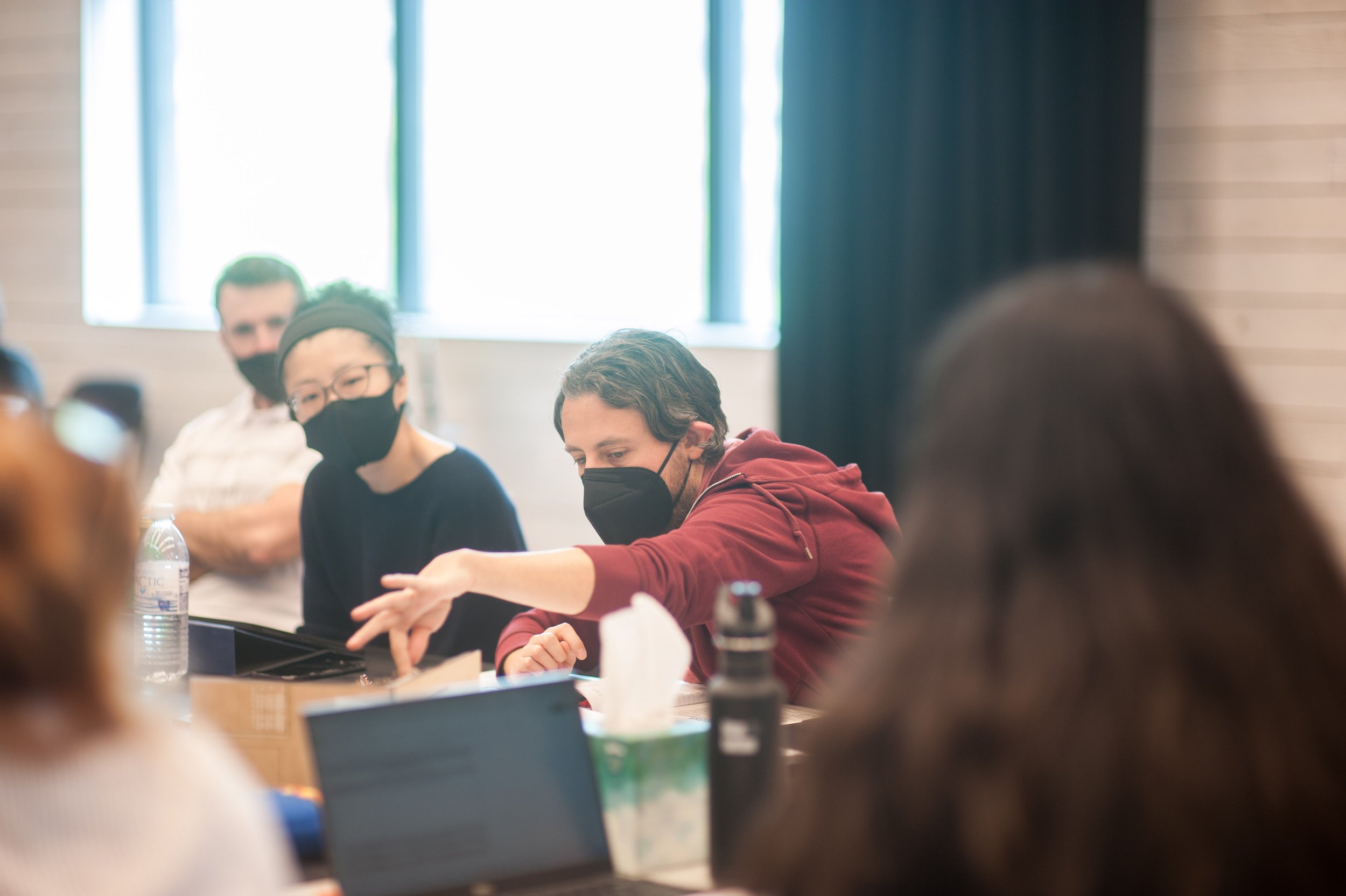Director of 'Miss You Like Hell': 'We need to be able to bring [these stories] here.'
From his first reading of the “Miss You Like Hell” script and score, director Esteban Arévalo Ibáñez was hooked. The show—music/lyrics by Erin McKeown and book/lyrics by the Pulitzer Prize-winning co-creator of “In the Heights”, Quiara Alegría Hudes—tells the story of Beatriz and Olivia, an estranged mother/daughter duo who embark on an epic, musical road trip, racing cross-country in an attempt to reconcile, as well as racing against the clock and the morass of red tape that is the American immigration system. The duo meets a slate of vibrant characters along the way, all representing the patchwork quilt that is America. The cast’s beautiful vocals singing McKeown’s toe-tapping, folk rock-Americana music are accompanied by a lively seven-piece band. It’s a fun time—but the musical has something big to say, as well.
“’Miss You Like Hell’ follows in the tradition of works like ‘Hair’, ‘Cabaret’, and ‘Rent’, addressing its moment in history with stories that help elucidate political concerns for a wider audience,” reads a recent review in DC Metro. “This musical reaches into the zeitgeist to produce a work that could not possibly be more timely, relevant, and important.”
It’s this importance—this relevance—that moved Ibáñez to tears when he first read the show’s script.
“[T2 Artistic Associate Rebecca Rivas] said, ‘I thought you would enjoy it,’” he says. “I think she knows that I need something that is meaningful. I said, ‘Yeah, please, please consider me for this.’ When I got it, I immediately started imagining and thinking about it, and I got super excited. It’s a very important story, right? We’re doing a story about immigrants—they’re the main characters, and just seeing them on the main stage and seeing the community that this show has, you see people from different places. It’s a diverse community. I think that’s a goal. We need to be able to bring that here.”
Ibáñez at the first read-through of “Miss You Like Hell”.
For Ibáñez, the play’s story is a personal one. Ibáñez is the son of a Colombian father and a Spanish mother, and he holds dual citizenship to both countries. When he decided he wanted to launch a career as a theater director after his undergraduate studies, he moved to Arkansas to study at the University of Arkansas. Once finished there, he returned to Columbia, where he taught for three years while wading through the onerous immigration process so that he could return to Chicago—and return to his partner, Shannon, who he met while studying at the UA.
“When I was working on [similar] shows in Chicago, I realized that some people just don’t even know that it is so hard to get a visa, how hard that journey is for every person,” notes Ibáñez. “Beatriz knows the system is unfair, but she still tries to do what she needs to do to find her daughter. So we’re bringing that story to them.”
Since returning to the United States, Ibáñez has immersed himself in telling the stories of the immigrant experience in the United States. In Chicago, he teaches high school students Spanish through a program specifically for heritage speakers—those who have learned a language informally through Spanish-speaking relatives.
“When I see Olivia in this play, I’ve taught that student many times now, for years,” he says. “Students that are completely disconnected from their language, or they just use it in a very limited, familiar context, because they feel there’s a wall there, a barrier.”
He’s also helped shape two solo shows in which women have detailed their difficult immigration experiences—coming into the United States as young people with their families and their struggles to stay in a country that had become home by the time they were being forced out.
“Debbie Banos is from Arkansas, and she was at the University when I was here, too,” says Ibáñez of one of these projects called “American Side Effectos”. “Her family is from El Salvador—they emigrated from El Salvador in the ‘90s, when the Civil War was happening. The show is her life story, and her mother's story of becoming a citizen—it lasted 25 years. ‘American Side Effectos’ is the price, the side effects of becoming an American, because you have to pay such a high price—she had to leave her family behind and is not able to be in contact with them. And also the economical price of that, like the lawyers—you cannot afford those things when you're here, and you cannot work. And also the emotional toll, the stress.”
Directing “Miss You Like Hell”, then, felt very familiar to Ibáñez, as bringing these stories forward remains one of his primary goals.
“I was one of the lucky ones, right?” he notes. “I came as a student—so very different story. And it was still hard for me. But it was a choice for me. A lot of people are running away from civil wars. It’s not an option for them; it’s life or death. The alternative is dying. That’s the pressure they have on them. And I know there’s a big Latino population here, a lot of people from Mexico, especially, and I think this is an important story to bring in. When we’re working in the rehearsal room, the actors say, ‘There’s a special energy here, because it’s so nice to be bringing this story here.’”
One thing that’s not quite so familiar to Ibáñez—this is the first musical he’s ever directed. He admits he was a little trepidatious at the prospect at the beginning.
“I think the need to tell the story beat the fear of the new medium,” he says, chuckling. “I thought it was a very important story, so I was like, ‘I’ll take it.’ I thought, ‘I’ll figure it out.’ And I’m learning a lot. And I think the thing is, when you have an amazing, talented group of people around you, you’re never alone as a director.”


